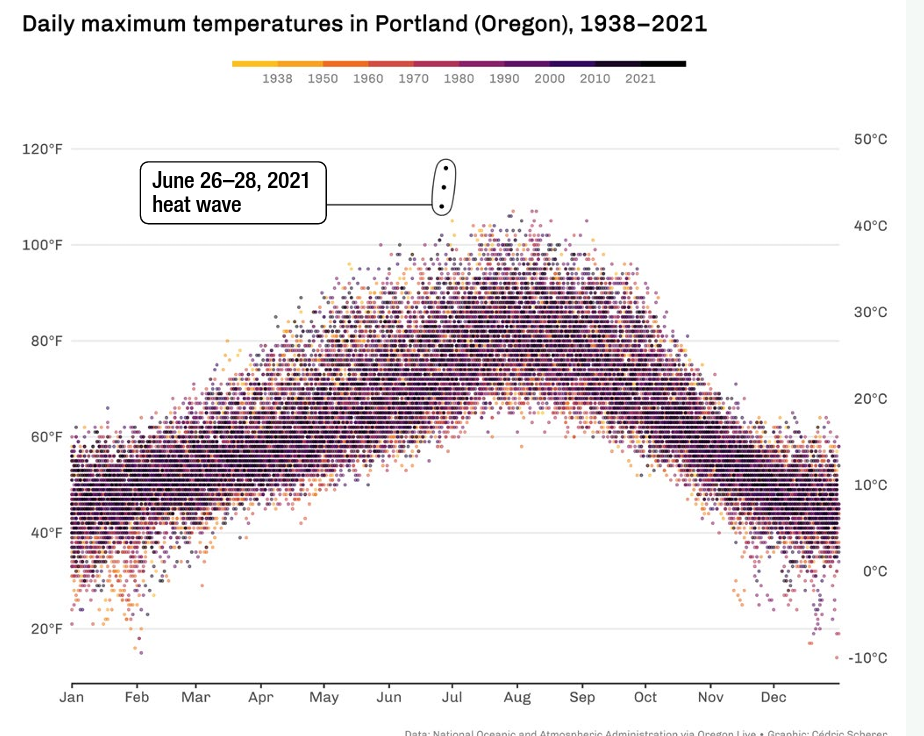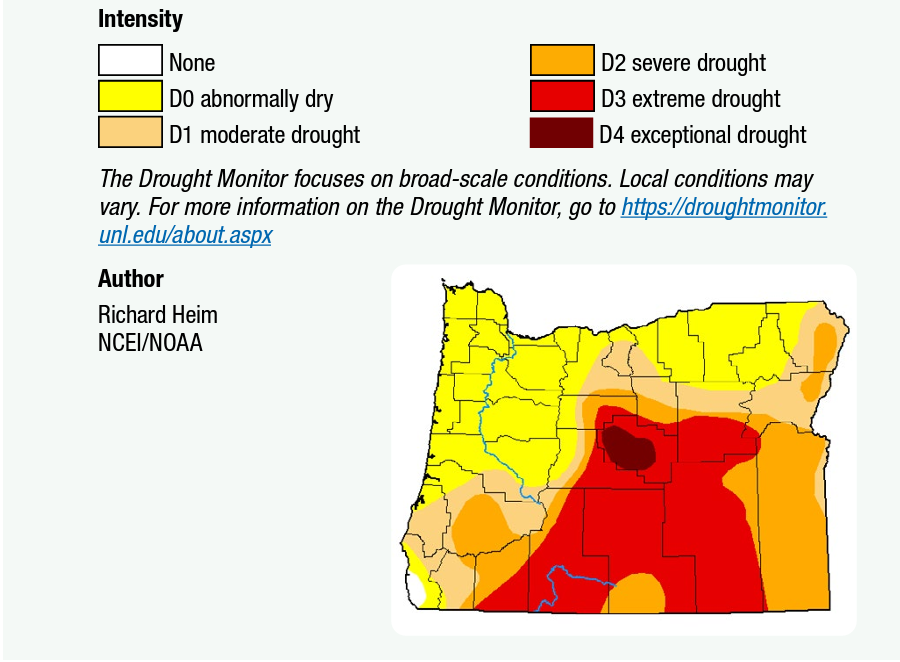The 42-page report found climate change-related events were a new fact of life for Oregonians, but lauded the state’s efforts to adapt to the crisis.
On June 22, the Oregon Health Authority (OHA) released its 2021-2022 Climate and Health in Oregon Report, which examined the impact extreme weather events and climate-related disasters on homes and families throughout the state, as well as assessing the state’s policy response.
The report concluded that due to consistent rising temperatures, these extreme weather patterns such as wildfires, heat waves, and ice storms will be a new fact of life for Oregonians to moving forward, but praised the state’s investments in climate change adaptation programs and legislation. The report called efforts to protect Oregonians from the fallout of climate change, “groundbreaking” though it did not provide any outcomes or assessments of the ongoing efforts.
The OHA developed the report in response to Gov. Brown’s Executive Order (EO) 20-04 directing OHA to provide annual reports on the public health impacts of climate change in Oregon. Due to OHA’s pandemic response and staffing, researchers at the organization were unable to complete a report for 2021 and issued a combined 2021–2022 report instead.
In 2021, 13 public Oregon water systems experienced low water supply. This trend continued in the heat dome-less 2022, when 14 public water systems experienced low water supply. Compare that to five-year period from 2016 to 2020, when only eight Oregon water systems ran low.
During the 2021 wildfire season, smoke especially affected Central and Southern Oregon, with several counties experiencing 20% higher asthma-like illness visits compared to 2020. People in Central Southern Oregon experienced the highest amount of dangerous smoke exposure. The cities of Bend, Klamath Falls and Medford experienced 83 days with air at or above an unhealthy level for sensitive groups (USG) compared to 41 days in 2020 and 11 in 2022.
2021 was an outlier year, even by global warming standards. The 2021 ‘heat dome,’ hot air trapped between low elevations, only happens every ten millennia, broke temperate records by double digits. But when charted alongside temperature data from 1938, heat levels show a slow, steady upswing – as have the problems they create.

While wildfire seasons vary from year to year, the report showed a continued rising trajectory.
The second half of the OHA report painted a hopeful picture of the OHA and legislature’s ongoing efforts to adapt to the new, harsher climate. The report detailed the organization’s investments into local public health authorities, Nine Federally Recognized Tribes of Oregon, and 157 community organizations to increase public health access, as well as its Healthy Homes Grant, established in 2021, to support houses making health-related upgrades, and its special protections for workers laboring in extreme heat.
The report noted in 2024, Oregon will become the first state in the nation to cover climate change-related expense though its Medicaid program.
The report also detailed the state’s $530 million in water infrastructure over the 2021–23 biennium.
This legislative session, lawmakers continued efforts to head off climate change. On June 23, the Oregon Senate passed HB 2010, a bipartisan bill which provides technical assistance to farmers, enhancement and restoration of drinking water sources, and invests $23 million into drought and water programming to improve water management, though the initial ask was $250 million.
“The last few years have been a sobering preview of hard times for Oregon communities, farmers and all of us who depend on them,” said Senator Jeff Golden(D-Ashland), Chair of the Senate Committee on Natural Resources, in a statement following the bill’s passage, which is now on the governor’s desk for signature.
“We are taking steps to preserve our water sources for our communities and future generations.”
To subscribe to Oregon Business, click here.




